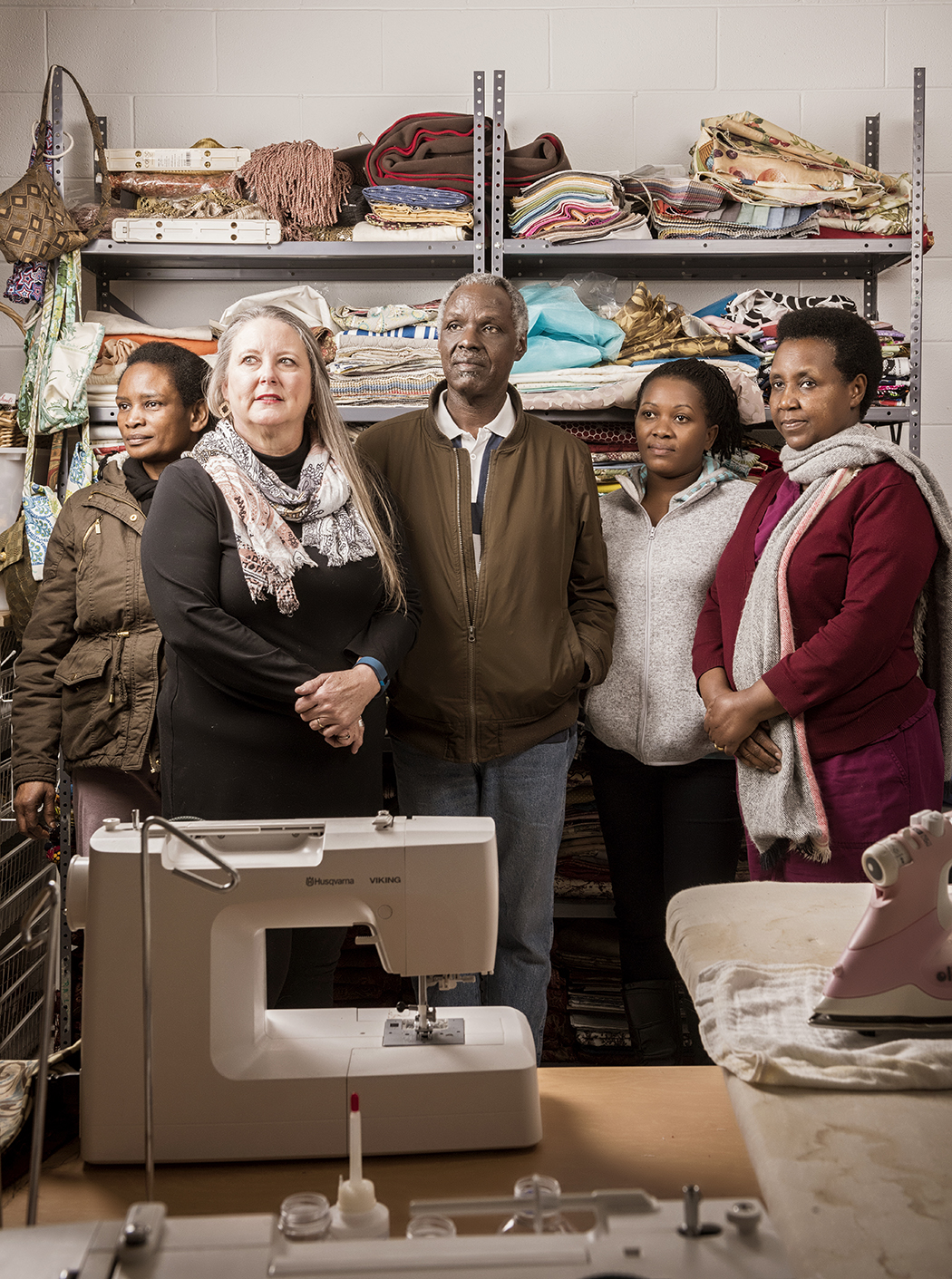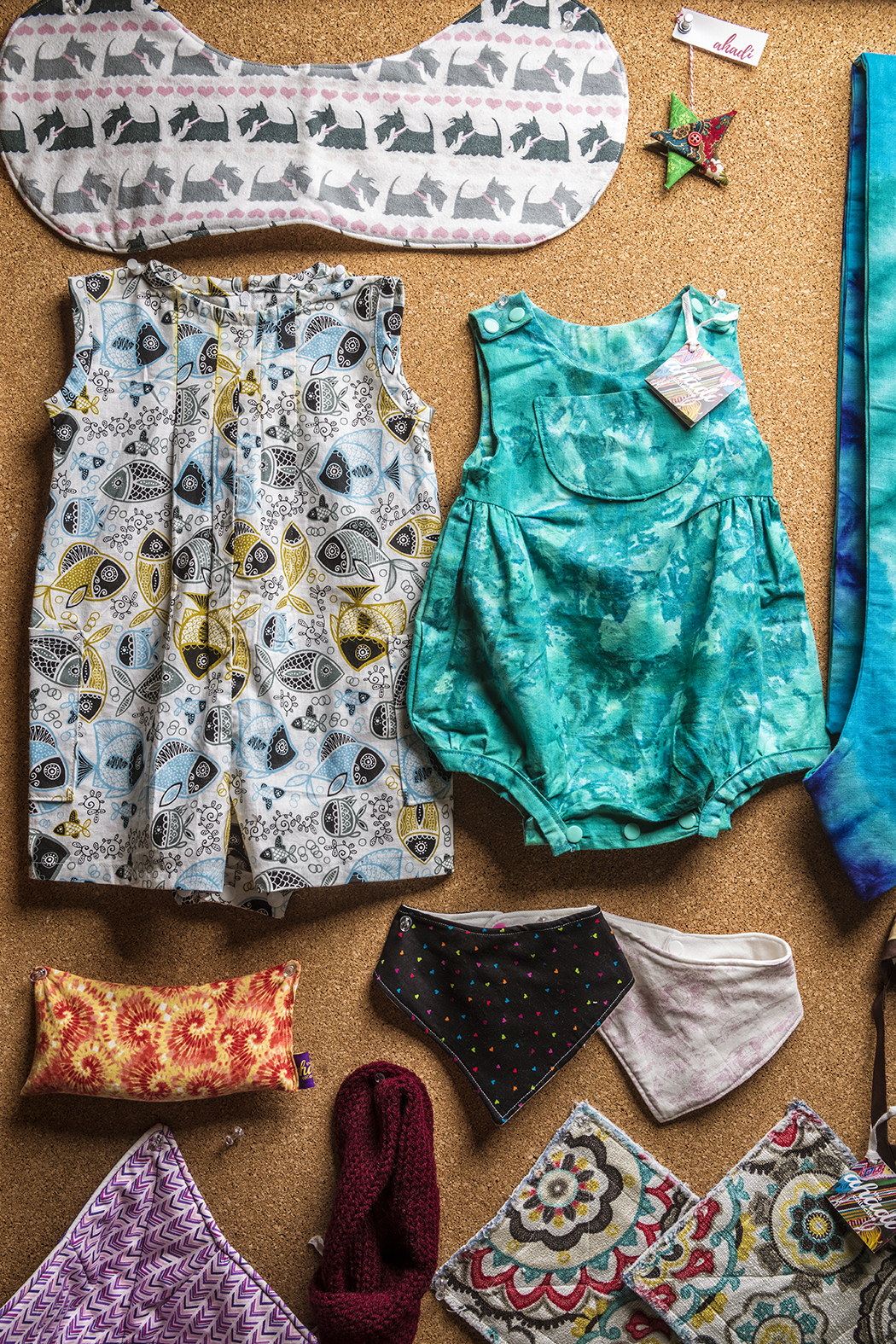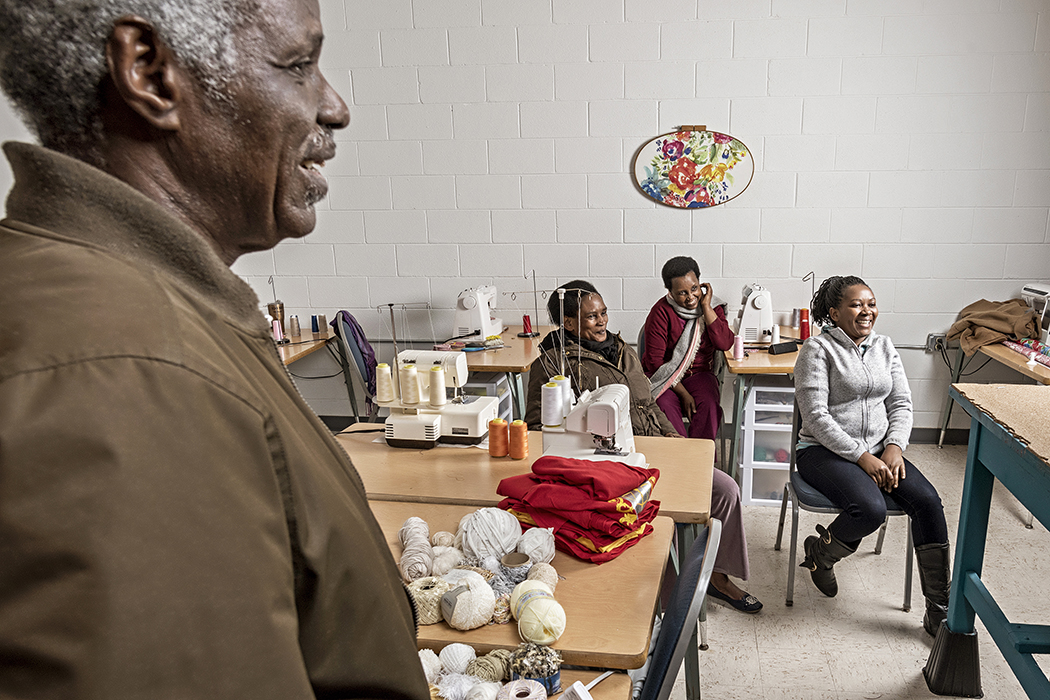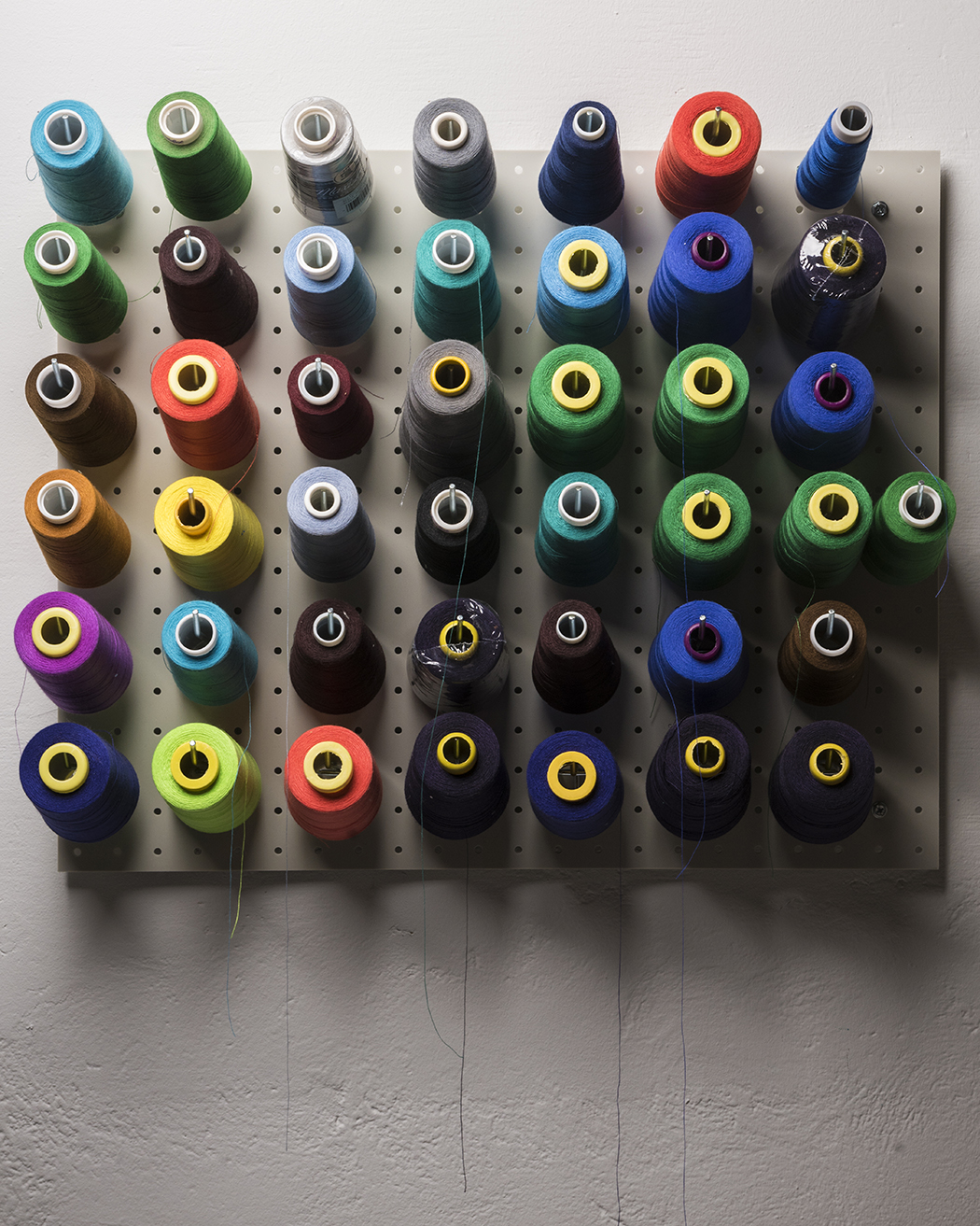
Photo by Danny Fulgencio.
LIVING ON A PRAYER
When Liboire Barenga first stumbled upon the idea for a textile company run by East African immigrants, one word came to mind: “ahadi.” Swahili for “promise,” the word encapsulated how he and his friends felt about the possibility, since many of them struggled to find employment. It was nothing more than a dream until the Missional Wisdom Foundation gave them the space and funding to get started.
The Ahadi Collective employs refugees from East Africa who sew and weave goods using donated materials. The Missional Wisdom Foundation subsidizes the workspace and salaries for the refugees, while proceeds buy any extra materials they need. The creativity of Ahadi allows them to turn old T-shirts and discarded fabric into baby clothes, bags, pillows and even clergy stoles in bold African patterns. Prices vary from $10-$100 so that everyone can afford an Ahadi piece.

Photo by Danny Fulgencio.
Seven members formed the company but three of them have moved on – one found a job at a Dallas home decor design company. Four members remain: Barenga and his wife, Marguerite Murerwa, along with Estarine Jacob and Jeanna Nahimana, the baby of the group. They all emigrated as adults from Burundi except for Jacob, who is from the Democratic Republic of Congo. But it was their love of God that brought them together.
The Missional Wisdom Foundation experiments with the goal of creating spaces for Christian community and worship outside of traditional church settings. While sewing and weaving may seem far from a religious activity, the people of Ahadi put God in the center of their business.
“Every workday begins with a hymn in Swahili and a prayer afterward,” Ahadi mentor Ronda Van Dyk says.

Photo by Danny Fulgencio.
Ahadi meets in the basement of White Rock United Methodist Church, where the Missional Wisdom Foundation rents a room for them. Four sewing machines line the right side of the room, while the other three walls are piled high with a kaleidoscope of fabrics. In the center of the room is a table where Barenga weaves yarn back and forth through a hula-hoop loom to make pillows.
ach day Barenga plays Christian music from his phone, a mix of English and Swahili, and everyone sings along while they work. They pray for each other when someone is ill and praise God when someone has a new grandbaby, which is every six weeks according to Van Dyk.
“A lot of tears and laughter happens in this place,” she said. “I’m usually the one with the tears.”
The group gave Van Dyk an African name — Baraka. It means “blessing.” Her background is in textiles, so she teaches the group new skills and comes up with product ideas.

Photo by Danny Fulgencio.
The biggest challenge for Ahadi is finding the right market for their goods. They struggle to find customers. A potential market in the basement of White Rock UMC is their latest plan to generate new buyers. The goal is to expand the business enough so that they can quit their second jobs and work at Ahadi full-time.
For now, with children and grandchildren to take care of, the salary they receive from Missional Wisdom Foundation is not enough to get by. But the work and the fellowship is sustenance in itself.
“It’s nice to come in and know people care about you physically and spiritually,” Van Dyk says. “I have a second family. I can even sing in Swahili.”





